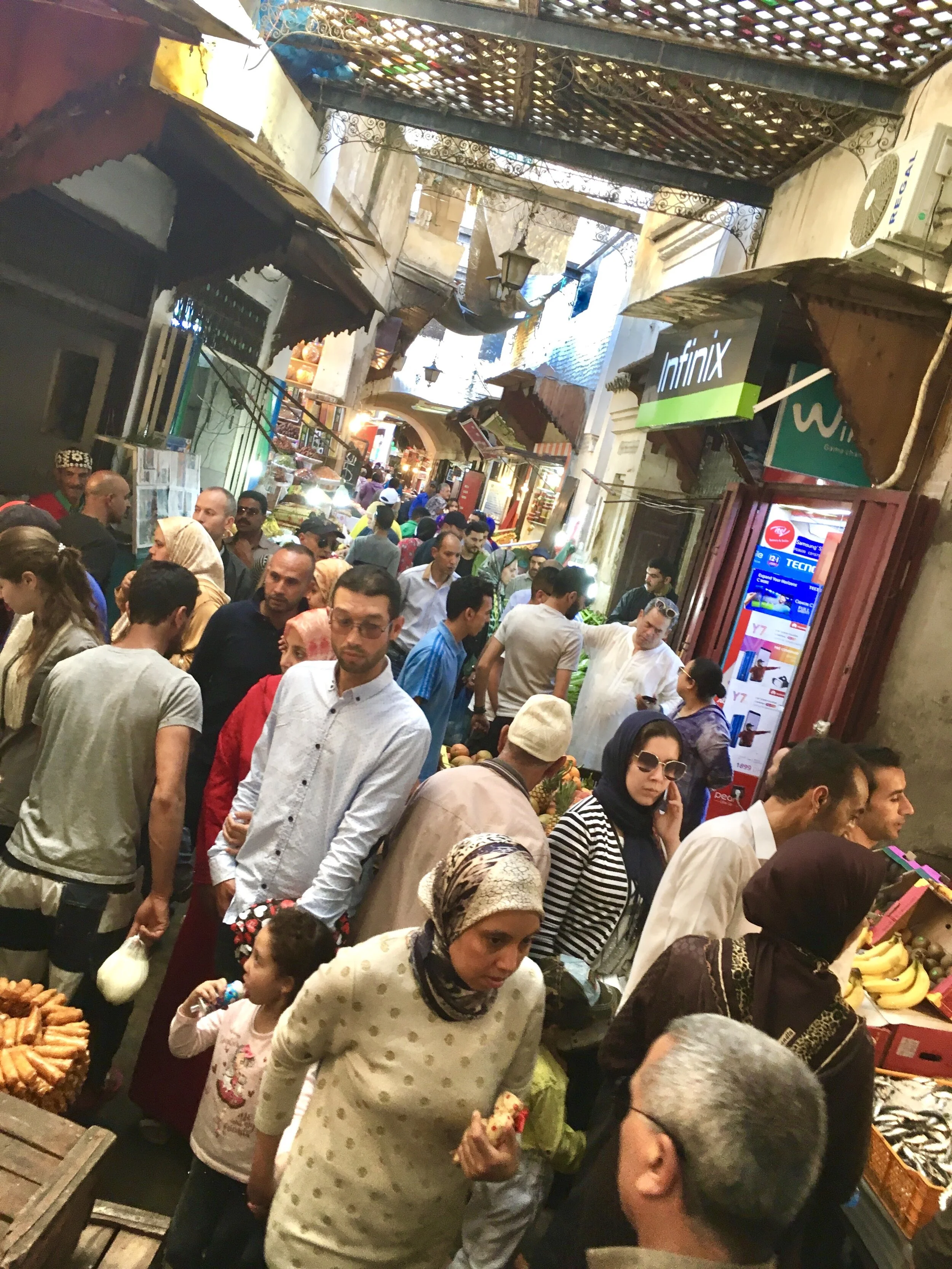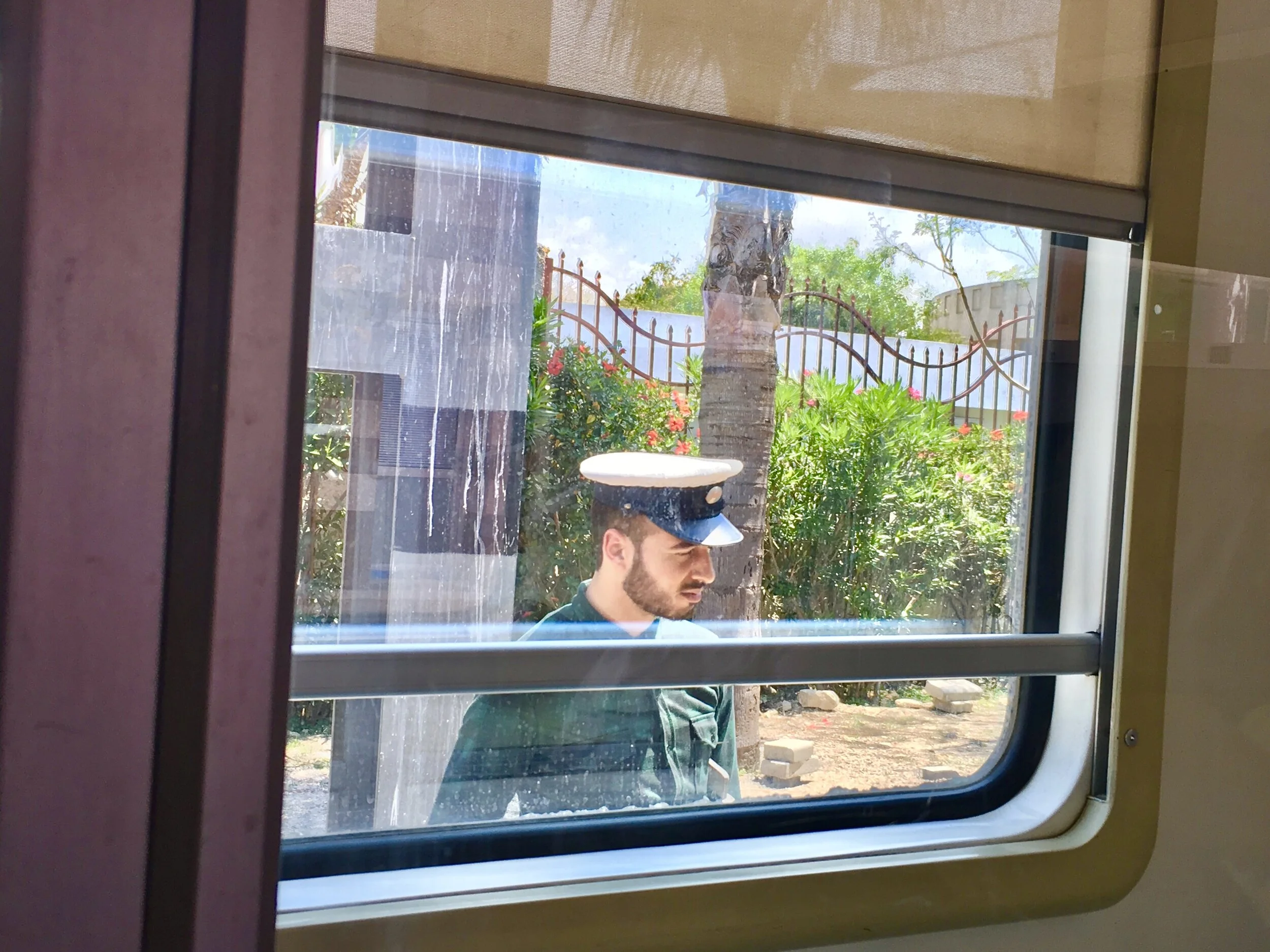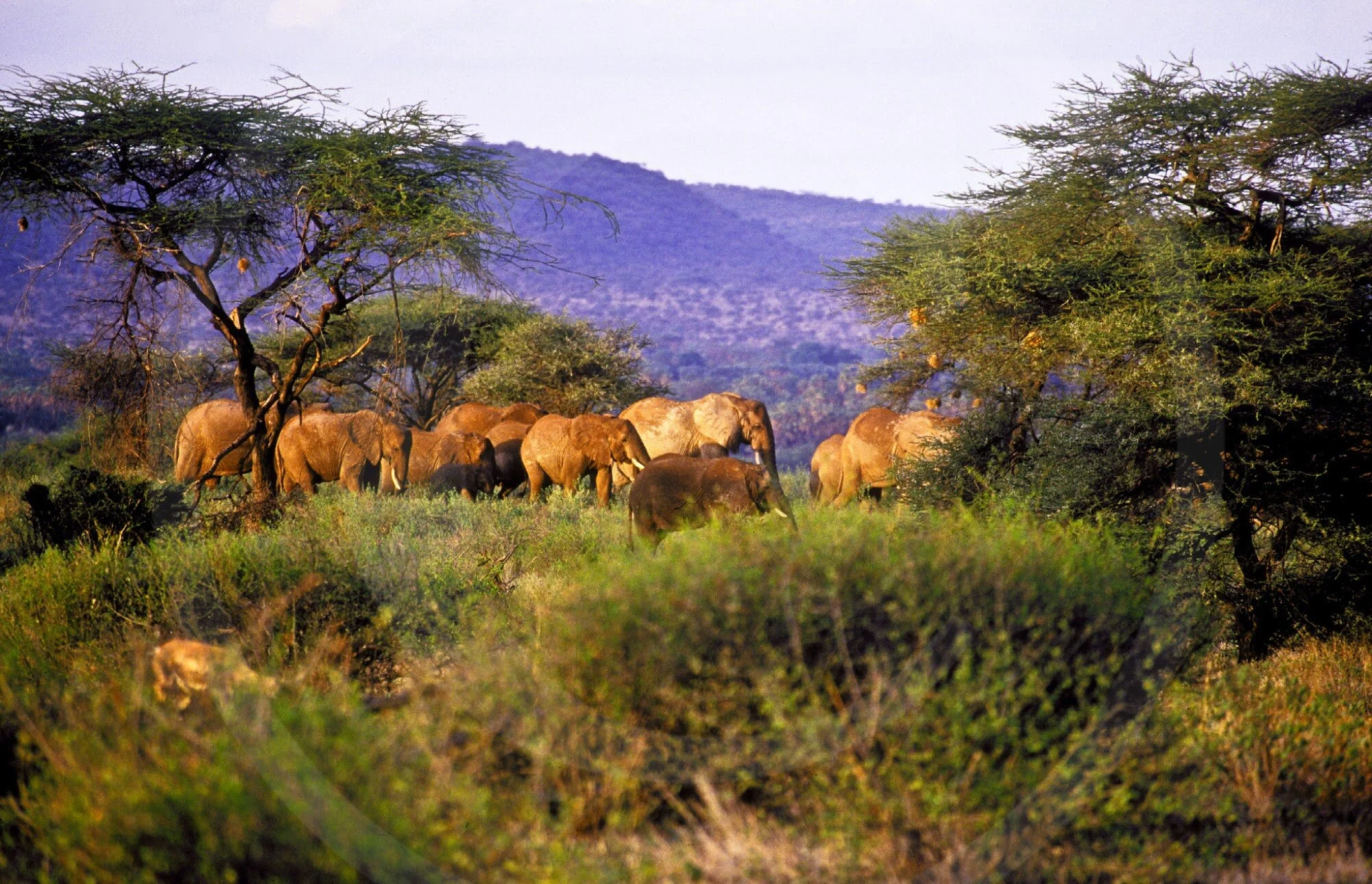Leaving Fez, Biting Our Nails
by Michael Papas
Having arrived in Fez, Morocco a day late, after trouble at the border leaving Spain, I found that my garrulous travel buddy, Ron, had already made new friends. Both retired, Ron and I had been traveling for three months without connecting with any other Americans, but when I arrived at our riad, I found a young couple from Minneapolis ensconced in the third bedroom. I was happy for the company and thrilled by our lodgings. A Moroccan riad is a wealthy family’s home that has been converted into a hotel or an Airbnb. In the true Moroccan style, it was neglected and featureless on the outside, but stunningly ornate on the inside. We had three comfortable bedrooms, two baths, and a wonderful Moroccan living room, with a large horseshoe-shaped divan, well piled with cushions, and a glorious view over the Medina, the 1200-year-old heart of the city. The interior was a mind-boggling show of Moroccan Islamic workmanship. Colorful and intricately glazed tile covered all the walls and ceilings. They were accented by extravagant wooden moldings.
The medina of Fez is about one-mile square, with 150,000 people, virtually no trees, and 9000 labyrinthine carless “streets”, many just a bit wider than your shoulders. You don’t go to Fez to relax; the whole city buzzes. A nearby minaret provided us with 24-hour updates on precisely when the locals would be reciting their Ramadan prayers. Also, when they could break their fast, and in theory, sleep.
We soon learned that during Ramadan (the holiest month in Islam, when the devout fast, refraining from food and drink during the daylight hours) all the coffee shops and restaurants were closed from sunrise to sunset since there were no customers. The citizens were irritable and grumpy. They were sleep-deprived, hungry, dehydrated, and also unable to smoke their beloved cigarettes during the long daylight hours of late May. We were surrounded by one and a half million people going through the pangs of nicotine withdrawal. Their pain was somewhat relieved during the night when they would eat twice, pray twice, chain smoke, and try to sleep a little in the remaining hours. I found the practice extremely admirable, and frankly, quite mad.
After getting to know each other, Ron and I, and the couple decided to join forces and suss out how we could travel to the Sahara together. Stumped by our internet searches, which provided many expensive options, our new friends, Elsi and Kyle, reported that they had met a young guy named Walid two nights before in a medina cafe. He was an endearing fellow who seemed honest, and we decided to ask him if he could help us get to the Sahara, see the desert, and maybe get pictures of ourselves on camelback to impress our Facebook friends.
Fortunately, Walid had a cell phone so we arranged to meet him for dinner that night. Over a wonderful tajine of couscous chicken, with almonds and prunes, we explained our quandary. Walid had an uncle, and his uncle might know someone. After a few phone calls in rapid-fire Arabic, his uncle arranged for us to meet a guy named Ahmed at his restaurant the following night. We were instructed to bring 4,800 Moroccan dirham in cash, the equivalent of about 500 US dollars. This gave us much pause and mildly apoplectic spasms of disbelief.
Would we turn that much money over to a Moroccan Berber who wasn’t even a travel agent? We told Walid that we would let him know later that night if we agreed.
Returning to the riad after our delicious meal, we argued the pros and cons of our proposed tour. The prospect of handing over 500 dollars in cash to a total stranger, in a strange city, where none of us spoke the language, had us seriously freaked out. It seemed like an insane idea. I was ready to go for it and argued that the worst that could happen was that we would lose only $125 each. Not a small sum, but a sum that all of us agreed we could manage. Besides, Walid was so sweet that we all felt like we could trust him.
We navigated the confusing maze of the medina alleys to the restaurant to meet Ahmed the next night. The man didn’t seem too shady, and in rough English, he explained that he would provide us with a driver for the 300 mile trip to Merzouga, near the Algerian border. He would also arrange a 5-star hotel before we headed out into the unfathomable Sahara for three days and two nights on camelback. Afterward, we would be driven the 350 miles West to Marrakech. He said that there was much to be seen along the way through the High Atlas, and assured us that our driver would act as our guide, and constant companion.
We thought his claims of a five-star hotel were doubtable and were concerned that the driver might not speak English. But Ahmed assured us that the driver was fluent, and we would have no problem communicating. He neglected to inform us that because it was Ramadan, the driver, Said, might be as taciturn as a lion, and half-insane from fasting.
We handed over our three-inch-thick stack of bills and asked Allah, the most merciful, to protect us. Ahmed announced that he would escort us to our pick up point early the next day. I remember thinking, “I’m not sure exactly what we bought, but if Ahmed actually shows up after taking our money, everything will probably be fine.”
At seven the next morning Ahmed was at our riad, ringing the bell, and we all breathed a sigh of relief. He led us out through the city walls and soon there arrived a shiny white Dacia (a Romanian made car) with room for all of us. After a few minutes of deliberation, we decided that the long term meditator in the bunch (me) should sit in the front seat; in case a cool head and fast hand needed to intervene with our mysterious driver.
We nervously piled our precious belongings into the back of the car and headed Southeast into the Atlas Mountains. Some of our fears did turn out to be well-founded, but with faith and a little luck, we did arrive safely, late that night in the real Sahara Desert. Trusting these unfamiliar strangers, with their very foreign system, had paid off.
Michael Papas is a 65-year-old Buddhist Oregonian with two grown children. After his marriage ended he bought a one-way ticket to Barcelona and stayed out of the US for 13 months, visiting 9 countries.







